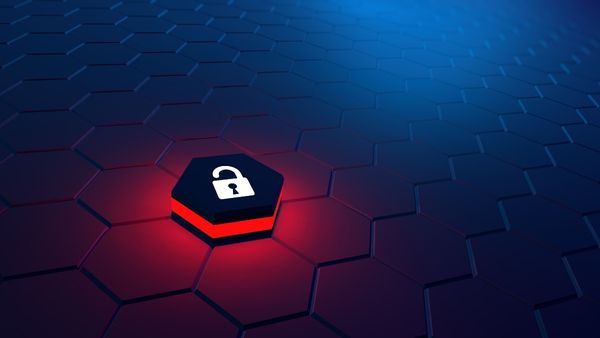
When thousands of professionals across nearly 90 countries and territories were surveyed, they overwhelmingly named cyber incidents as the biggest concern for their businesses (Allianz Risk Barometer 2022). In addition, a recent article from The Wall Street Journal noted that corporate CIOs are reporting that cybersecurity solutions will be their number one investment priority in 2023. This all makes sense when you consider the devastating impact a cyber attack can have on your business, along with the significant number of high-profile attacks in recent years. It’s clear that there is a pressing need to address these continuously evolving and escalating threats.
Regardless of the size or type of your business, cybersecurity is a key priority. It is a common misconception that cyber criminals only target large, high-profile companies; however, companies of all sizes can easily become a target. In fact, it is not unusual for hackers to take aim at small businesses, because their websites and network systems often have more vulnerabilities and are easier to access.
A growing number of organizations have realized that investing in reliable cybersecurity services is imperative to their business operations, customer security, and long-term success. The best solutions are those that have been precisely tailored based on your organization’s needs and goals, but there are a handful of core components that should be a part of every organization’s cybersecurity strategy.
1. Endpoint protection as a service (EPaaS)
Every endpoint in your organization, including mobile phones, laptops, and tablets, is a potential entry point that can be exploited by cyber criminals. With remote work becoming more commonplace than ever before, hackers are acting quickly to take advantage of newly created vulnerabilities. Add to that the introduction of technological trends such as the internet of things (IoT), and it is easy to see why this is such a serious issue.
Endpoint protection as a service (EPaaS) combines monitoring and response to rapidly mitigate potential threats at all endpoints within your network. The best cybersecurity services companies implement artificial intelligence (AI) to effectively scale detection and response efforts to keep up with the aggressiveness and magnitude of endpoint attacks today. And because many of your organization’s newest endpoints are likely those used by remote workers who can access your network at any time, establishing 24/7 monitoring and alerts is a must.
One of the major advantages of superior EPaaS is the ability to utilize automated, playbook-driven responses. This significantly reduces the amount of time needed to identify and address suspicious activity, enabling rapid, action-oriented solutions that stop hackers in their tracks.
Key components of effective endpoint protection services include:
- Managed detection and response
- Context-driven threat detection
- AI-powered malware and virus protection
- Script management
- Enterprise-wide threat hunting
- Device policy enforcement
2. Data protection
In the third quarter of 2022 alone, nearly 15 million data breaches occurred worldwide. And unfortunately, the U.S. has the unwanted title as the country in which a data breach has the biggest financial impact: here, the average cost of a data breach is nearly $9.5 million, which is more than double the global average (IBM). But when a company can quickly identify and resolve data breaches – or better yet, prevent them – they can dramatically reduce the negative impact of such incidents.
As such, data protection as a service (DPaaS) is a foundational component of a well-rounded cybersecurity strategy. It is important to devise a fully integrated solution that will provide comprehensive protection, considering both structured and unstructured content. From sensitive customer information to employee communications, proprietary documents, and other valuable content, the right DPaaS solution will lock it all down. Generally, data protection solutions incorporate email encryption, endpoint protection, and other vital elements to achieve the highest possible level of security.
A solid data protection solution should include:
- Monitoring/protection of data in use, in motion, and at rest
- Extensive data visibility
- Automated encryption of all sensitive data
- Maintain a copy of data in immutable storage
- Features to ensure regulatory compliance (HIPAA, GLBA, PCI, etc.)
- Automatic device detection and migration capabilities
- Streamlined deployment and management
3. Patch management
Did you know that application vulnerabilities are the most used external attack method? Take a quick look at the data from the National Vulnerability Database (compiled by NIST), and it is impossible to ignore just how serious of a risk emerging common vulnerabilities and exposures (CVEs) can pose. Hundreds of new CVEs are reported every day, adding up to tens of thousands of potential weaknesses in your organization’s applications.
The sheer volume of vulnerabilities makes this issue virtually impossible to manage without professional support. Patching is critical but time consuming, leading many organizations to simply become overwhelmed, which leaves them open to attack. Patch management as a service frees you from the staggering burden of monitoring and implementing new patches, so you can have the peace of mind of knowing your business is adequately protected. You gain back the time you need to focus on other priorities, and shifts in your IT environment are no longer a major source of stress.
Patch management services must be flexible, in order to adapt to your changing IT infrastructure and needs. Ideally, your patch management solution should also include:
- Distributed and remote patching
- Centralized control and professional management
- Third-party application patching
- Automation for more efficient patching
Heterogeneous platform support
4. Multi-layer firewalls and/or Zero Trust Network Access (ZTNA)
Odds are your business has already implemented firewalls on some level. Firewalls are one of the most basic and crucial of security efforts, protecting your network and all connected devices from a wide variety of cyber threats by preventing unauthorized access. Going one step further, multi-layer firewalls utilize something called dynamic packet filtering technology, which evaluates inbound data before it is allowed to enter your network.
A multi-layer firewall serves multiple purposes, upping the ante when it comes to threat detection and alerts. Your network and active connections are constantly monitored, and the multiple “layers” of security slow down any cybercriminals that gain access. You’ll be better equipped to cut off access before an unauthorized user can do serious harm, which can make a world of difference.
If your business engages in remote work practices (like many modern organizations), a Zero Trust Network Access (ZTNA) solution may be more appropriate than a standard firewall approach. ZTNA services harness the power of cloud-based solutions to implement multiple levels of identification and authorization for all users and devices. By establishing strict security controls at all levels (device, application, user, etc.), you can more effectively address the security concerns that come with remote work.
Zero Trust Network Access services should ideally feature:
- Intelligent decision-making that incorporates context and behavioral data in real time
- Analysis of application requests at the protocol level
- Streamlined administration to maximize efficiency and ease
5. Cybersecurity awareness and training
The human risk factor has perhaps the greatest impact on the security of your business, but it is also the most difficult to control. A human element plays a role in more than 80% of all data breaches, with situations ranging from uninformed decision-making to failures to follow organization policies. Oftentimes, these mistakes are caused by a basic lack of understanding or knowledge. In any case, they can have a seriously detrimental effect on your business.
One of the best investments your business could make is cybersecurity awareness training; and yet, many people underestimate its value. Effective training can empower your business to build a “human firewall,” so that your employees are an asset, rather than a weakness, for your security strategy.
Of course, achieving results with cybersecurity training requires a customized solution that addresses your organization’s unique needs, compliance regulations, pain points, and so on. The ideal provider is a cybersecurity services company that is extremely well-versed in the latest threats and technology.
Invest in Professionally Managed Cybersecurity Services to Protect Your Business
Look at it this way: you wouldn’t leave the doors of your business unlocked or your most valuable assets unsecured, and you certainly would not allow just anyone to access your organization’s innermost offices. But without a robust cybersecurity solution, that is exactly what you’re doing.
People often ask our team, “What is the #1 cybersecurity threat today?” And to be frank, the biggest risk that businesses face is simply the lack of a proper cybersecurity strategy. Basic security solutions may have been sufficient several years ago, but cyber criminals have grown far more advanced – and so must your efforts to protect your business, employees, and customers.
The cybersecurity experts at Quest can help you identify and address any gaps in your current strategy, and can provide you with helpful guidance for creating a customized solution for your business and its security needs. Whether you are starting from scratch or need to shore up a few minor weaknesses, we are here to serve as your partners in security.
I hope you found this information helpful. As always, contact us anytime about your technology needs.
Until next time,
Tim
Meet the Author


